Living into our hundreds conjures up images of sci-fi movies with magic anti-aging pills and bionic organs. Turns out, the secret to living longer isn't actually a secret at all. Studies show that making it healthily and happily to old age requires a number of lifestyle habits: not smoking, having an active social life, getting exercise, maintaining a healthy weight, and eating the right foods.
Although no one food can extend your life by itself, there are plenty of foods that you can eat in combination with one another that may help live a healthier and longer life. Whether they're packed with antioxidants, can help lower harmful LDL cholesterol levels, or can assist with blood sugar regulation, these 20 foods may just help you stave off chronic, life-threatening diseases.
Leafy greens
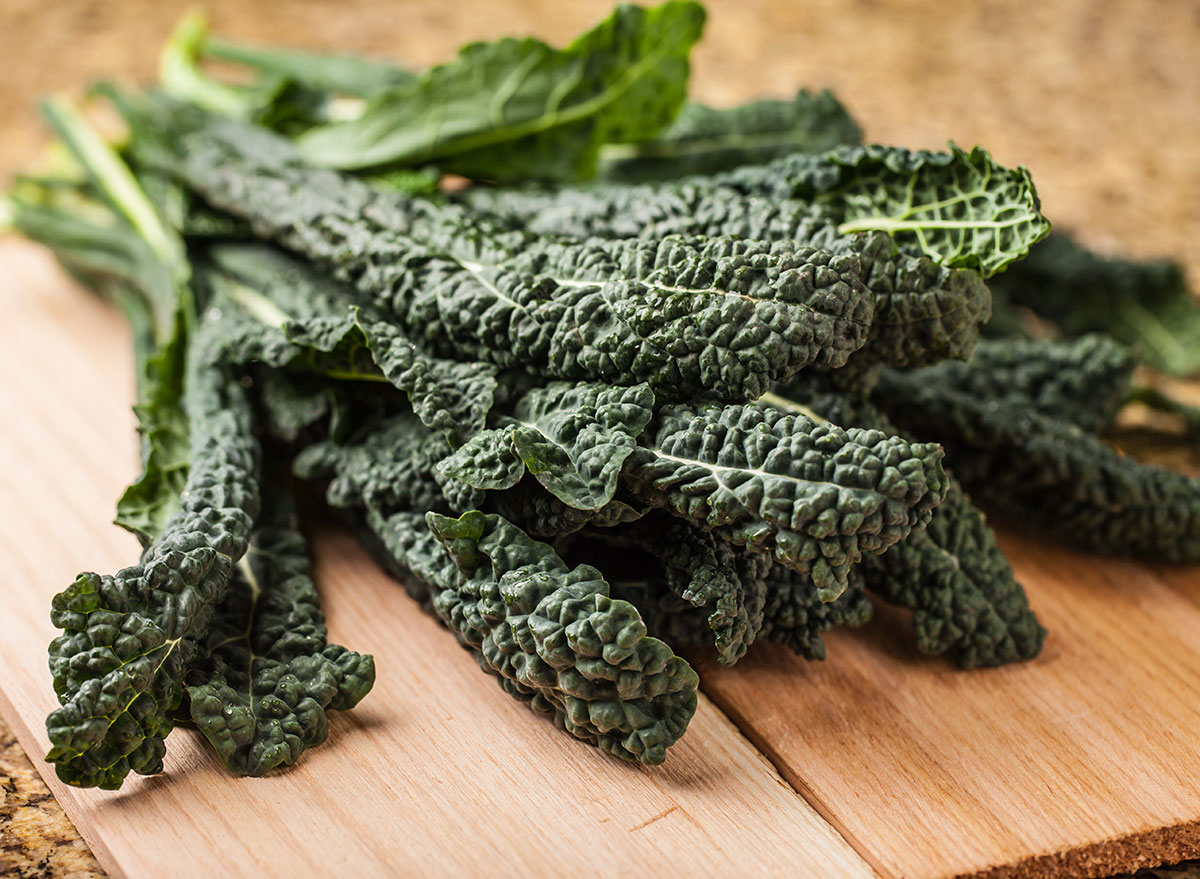
Leafy greens, like spinach, kale, arugula, mesclun, and romaine, are some of the healthiest foods on the planet. In fact, in a study conducted by William Paterson University, the top 15 nutrient-dense types of produce were all greens. These leafy greens should be the basis of a healthy diet to combat disease-causing inflammation and heart disease. People who ate at least one serving of leafy greens a day decreased their risk of all types of cancer by 8%, and a separate study showed the same intake was linked to a 15.8% decreased risk of cardiovascular disease—the leading cause of death for American adults.
Extra-virgin olive oil
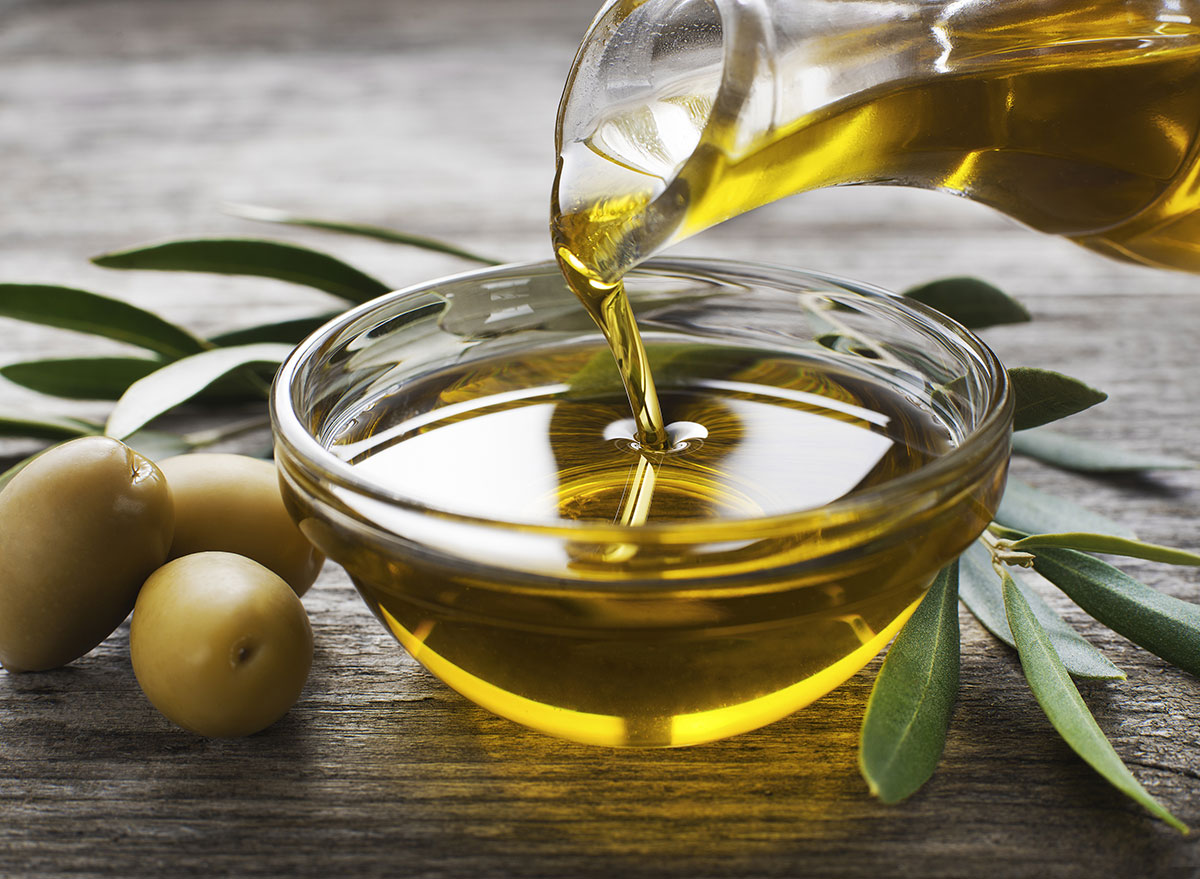
Extra virgin olive oil (EVOO) is a staple in the Mediterranean diet, which has long been deemed the best diet for living longer. Researchers believe the heavy presence of heart-healthy monounsaturated fats in EVOO is a major factor. Extra virgin olive oil also contains potent antioxidants called polyphenols, which may help protect your brain. A review published in Advances in Experimental Medicine and Biology found that EVOO's antioxidants play an important role in preventing the onset and progression of Alzheimer's disease. A separate Journal of Alzheimer's Disease review found that these antioxidants have beneficial effects on learning and memory deficits, and could help reverse age-related cognitive decline.
Almonds
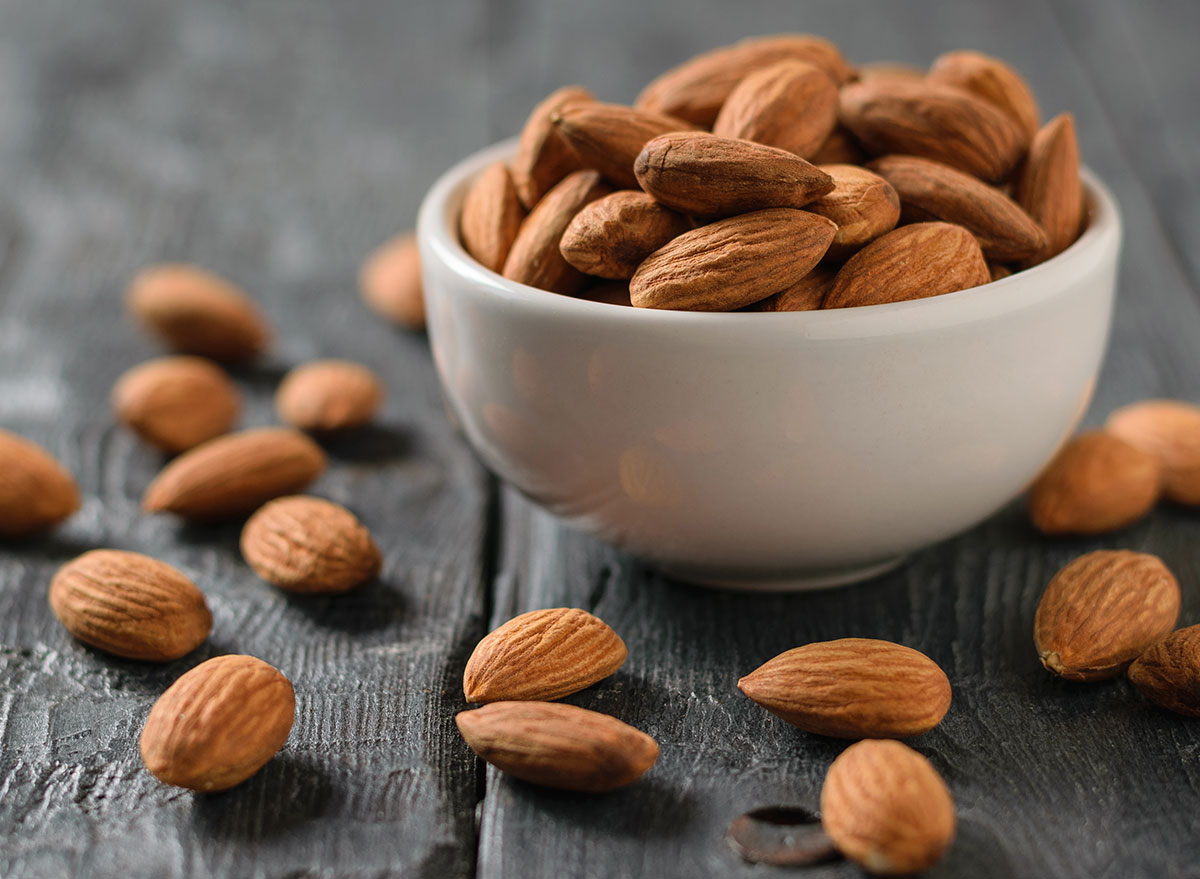
Almonds are nature's perfect snack; they're rich in fiber, protein, and heart-healthy fats. They can also help you live longer. A study published in The New England Journal of Medicine found that those who ate the most nuts had a lower risk of dying of any disease, particularly of cancer, heart disease, or respiratory disease.
Walnuts
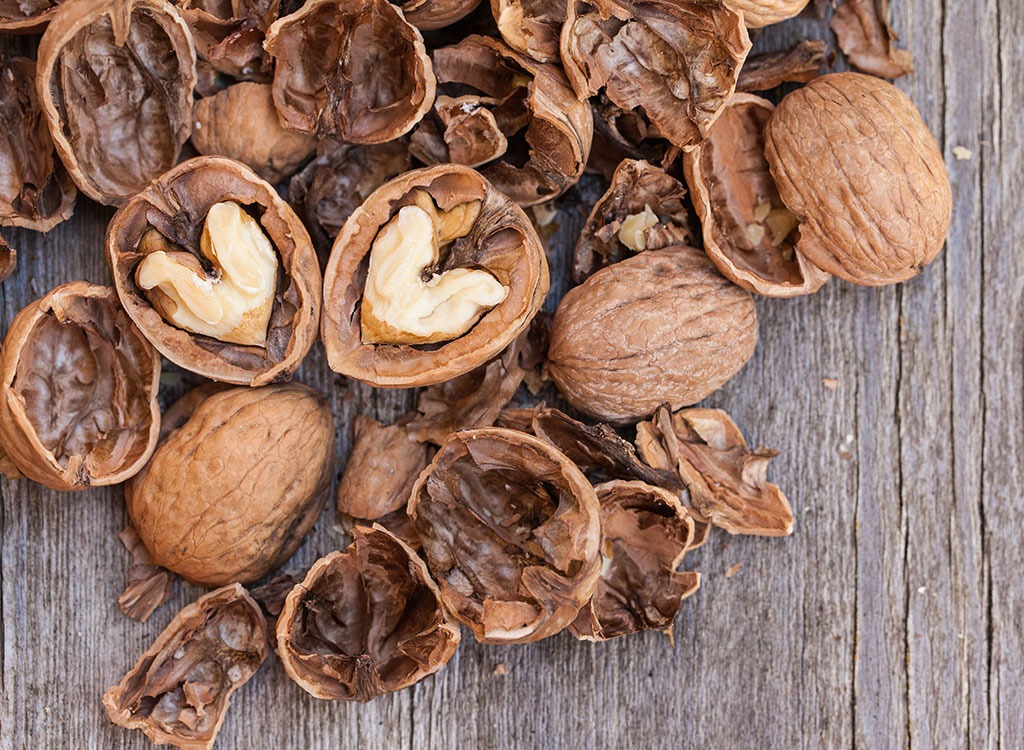
Like almonds, walnuts contain hearty levels of good-for-you monounsaturated fats and can help lower bad cholesterol. They may also help prevent cognitive decline; a study published in the Journal of Alzheimer's Disease found that eating walnuts were associated with better memory. Researchers believe it's the antioxidants in walnuts that could be the reason.
Avocado
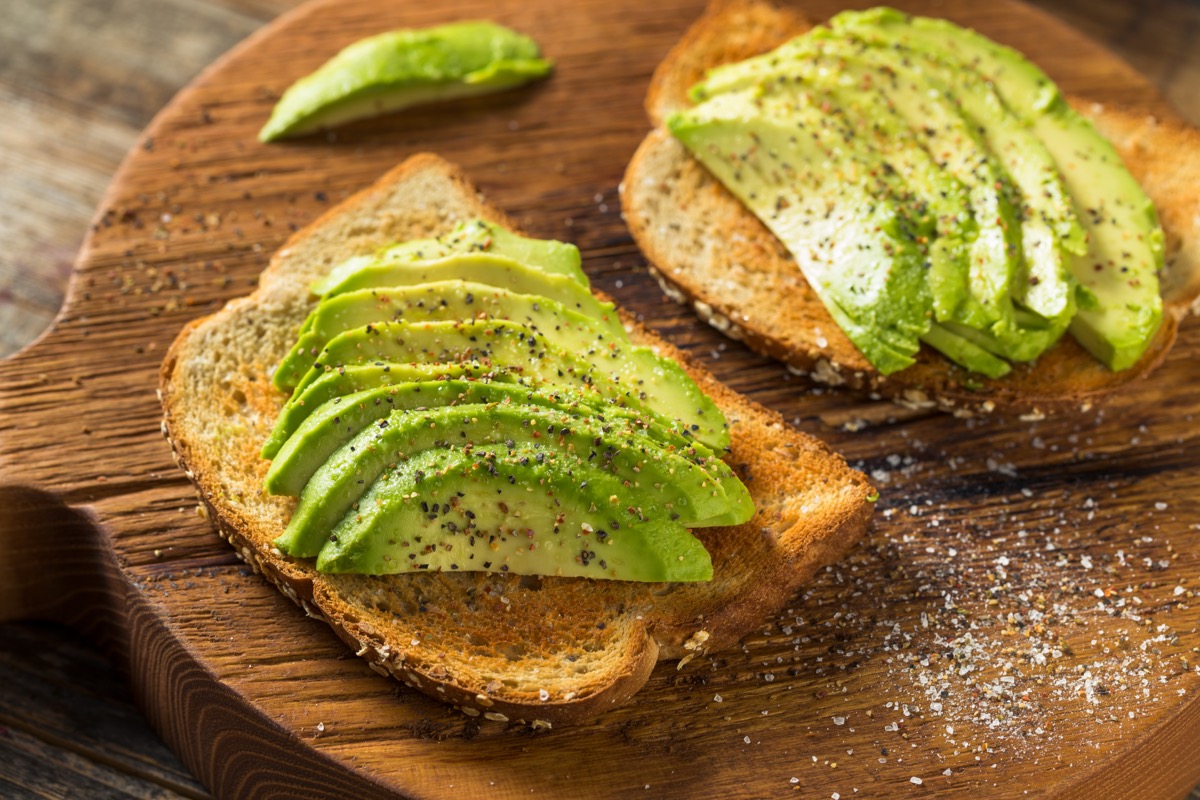
Avocados are more than just a trendy toast topping; the heart-healthy monounsaturated fats could help lower cholesterol, and stave off heart disease. These healthy fats also help you eat less by keeping you feeling fuller, longer. And there could be some powerful disease-fighting components; a study published in the journal Cancer Research found that molecules in avocados targeted stem cells of acute myeloid leukemia (AML), which is an aggressive type of cancer that kills 90% of people who are diagnosed over the age of 65.
Chia seeds

One of the secrets to a healthy diet is getting enough fiber. Fiber is the key to suppressing your appetite and keeping blood sugar low. Chia seeds are surprisingly full of fiber, packing an impressive 6 grams in just two tablespoons, which equates to 22% of your daily value. They can also help lower the risk of heart disease and type 2 diabetes. One study published in the Archives of Internal Medicine found that people who increased their dietary fiber intake significantly lowered their risk of death. Chia seeds are easy to throw into yogurt or weight loss smoothies or to top your salad with.
Oatmeal
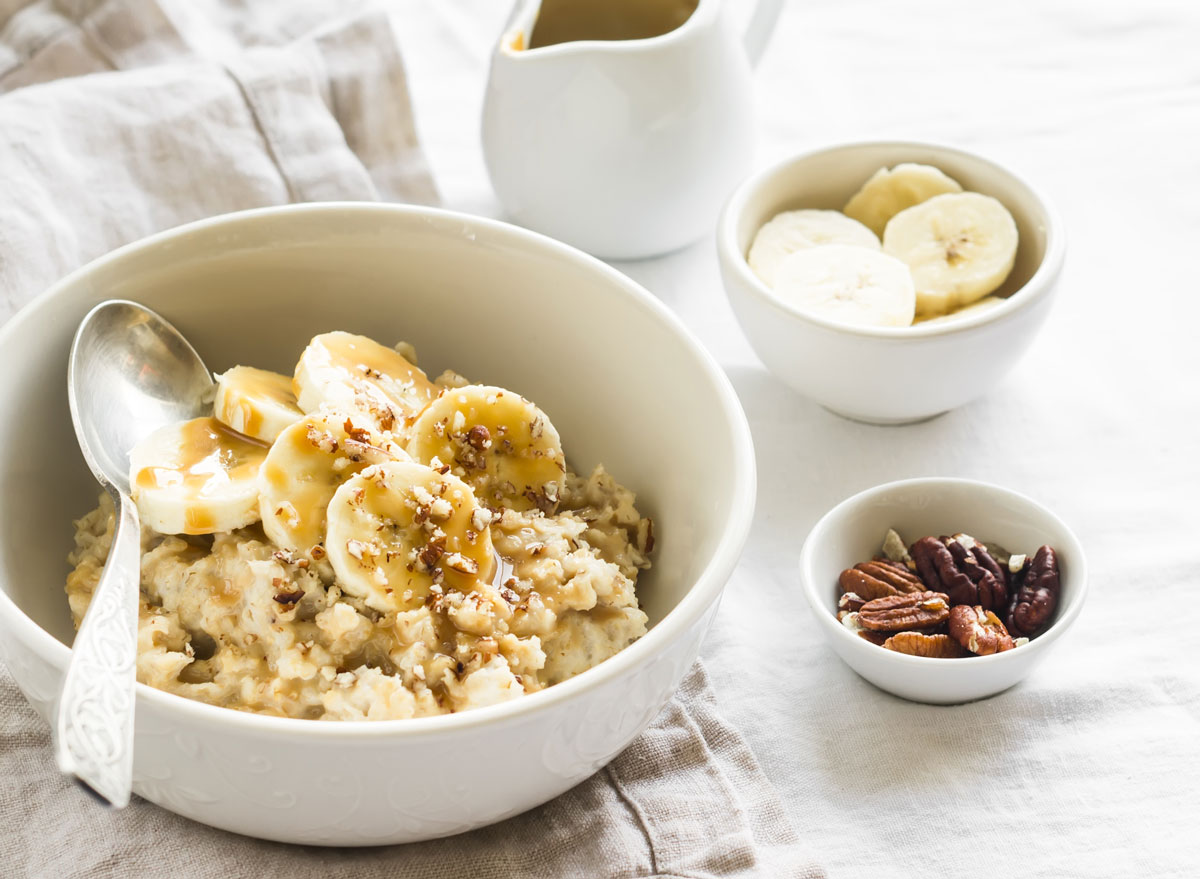
People tend to steer clear of carb-heavy meals, like oatmeal, but this fiber-rich grain can help regulate cholesterol. Oats contain beta-glucan, which has been shown to reduce levels of LDL aka the "bad" kind of cholesterol. When eating in their whole form, oats rich in beta-glucan help lower levels of LDL cholesterol in your bloodstream, which can reduce your risk of cardiovascular disease, according to a review in the journal Food & Function.
Bell peppers
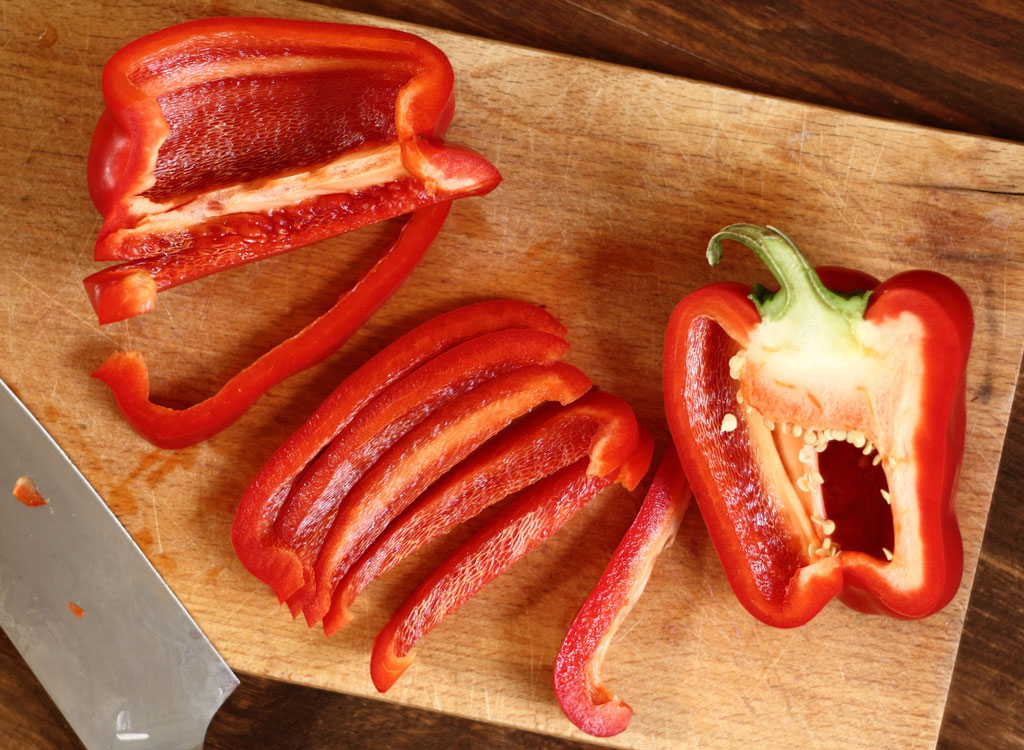
Red fruits and vegetables are full of crucial vitamins; red and orange bell peppers, in particular, have powerful antioxidants. They're excellent sources of vitamin A (26% DV) and vitamin C (150% DV), as well as a good source of vitamin B6 (16% DV) per cup sliced. Red bell peppers also contain phytochemicals and carotenoids, which are antioxidants that have anti-inflammatory, and potentially life-extending, properties. One study published in The Journal of Nutrition linked higher carotenoid levels with a lower risk of mortality in older women over the age of 60.
Blueberries

Blueberries are chock-full of antioxidants, which are some of your most powerful weapons against aging. Antioxidants help ward off disease and can fight inflammation. There's one group of bioactive compounds in blueberries, known as flavonoids, that has been linked to longer lifespans. A British Journal of Nutrition study examined data from the Nurses Health Study: one of the largest investigations into the risk factors for major chronic diseases in women that followed over 93,000 women over the course of decades. The researchers found a close link between eating flavonoid-rich foods—specifically red wine, tea, peppers, blueberries, and strawberries—were at reduced risk of all-cause mortality compared to those who did not consume these foods in significant quantities.
Red Wine

In the same blueberry study mentioned before, the Harvard researchers found the strongest association between flavonoid-rich foods and longer lifespans for red wine and tea (coming up next). Like extra virgin olive oil, red wine is a key food in the life-extending Mediterranean diet. The beneficial role of red wine plays on mortality and overall health has been attributed to its potent phytochemical compounds. As for how much you should drink to reap the rewards?
A study published in the journal Diseases found that a moderate intake of between 1 and 2 glasses per day (while also following a healthy diet, like the Mediterranean diet), can promote improved overall health and prevent chronic diseases such as cardiovascular disease, metabolic syndrome, cognitive decline, depression, and cancer.
Tea
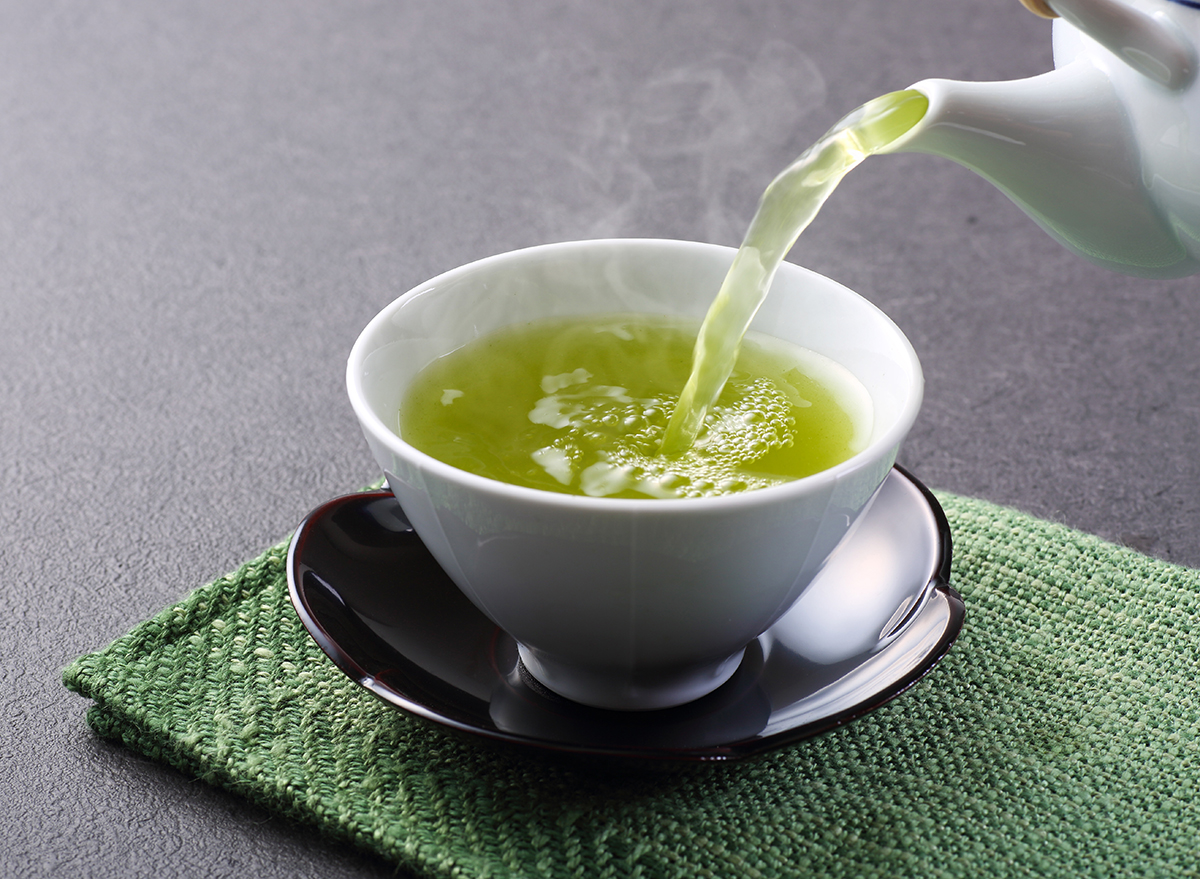
Green tea is one of our favorite foods for weight loss; it's been shown to rev up your metabolism, squash hunger, quell stress, and shrink fat cells. In addition to keeping weight off, it also has anti-aging benefits. A British Journal of Nutrition study found that drinking just one cup of green tea per day was associated with a 5 percent lower risk of cardiovascular disease mortality and with a 4 percent lower risk of all-cause mortality. Not a green tea fan? No problem. Sipping on a cup of black tea every day was also significantly linked to a lower risk of all-cause mortality as well as cancer mortality.
Tomatoes
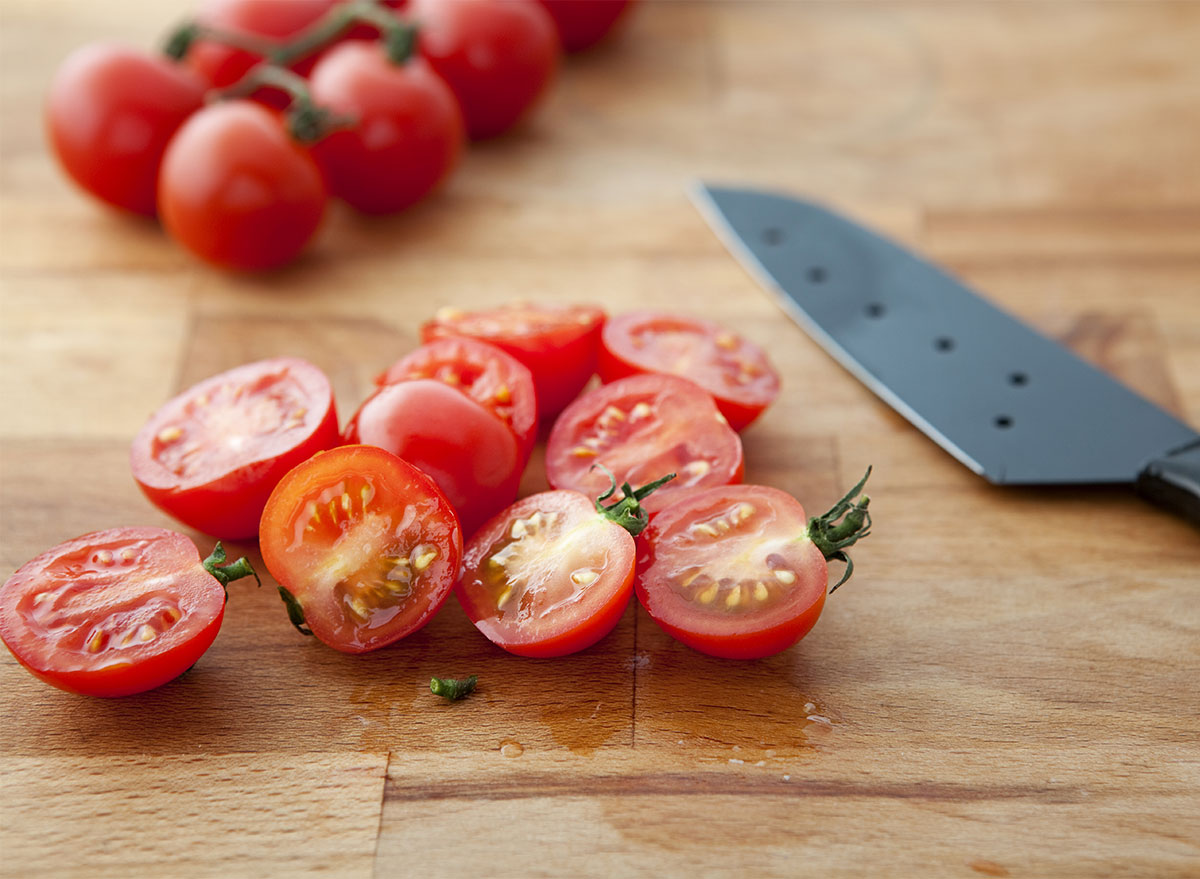
Inflammation can age your body fast, putting you at risk for weight gain, heart disease, and Alzheimer's. Tomatoes can help fight inflammation, thanks to the presence of lycopene. In addition to its anti-inflammatory properties, lycopene has also been linked to lowering LDL, or "bad" cholesterol. According to a review article published in the European Journal of Internal Medicine, eating lycopene-rich tomatoes and tomato products has been shown to be associated with a decreased risk of chronic diseases such as cancer and cardiovascular disease.
Apples
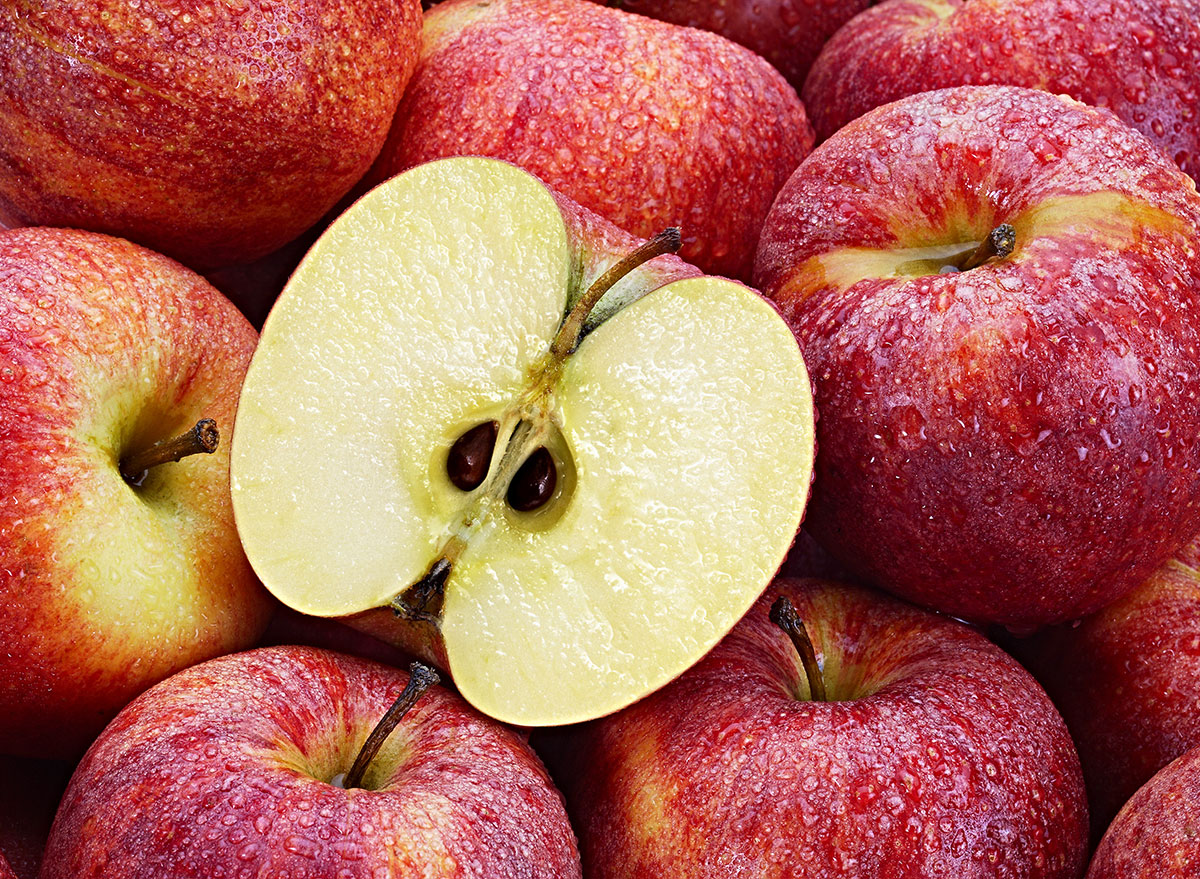
An apple a day keeps the doctor—and the Grim Reaper—away. Healthy fiber from the skin can help prevent the onset of type 2 diabetes; a study published in BMJ found that eating whole fruits, especially apples, can lower your risk of developing the chronic disease. Plus, a review published in Advances in Nutrition summarized apples' ability to reduce the risk of chronic diseases such as cancer, cardiovascular disease, asthma, and Alzheimer's disease, and may also be associated with improved outcomes related to the cognitive decline of aging, weight management, and bone health.
Coffee
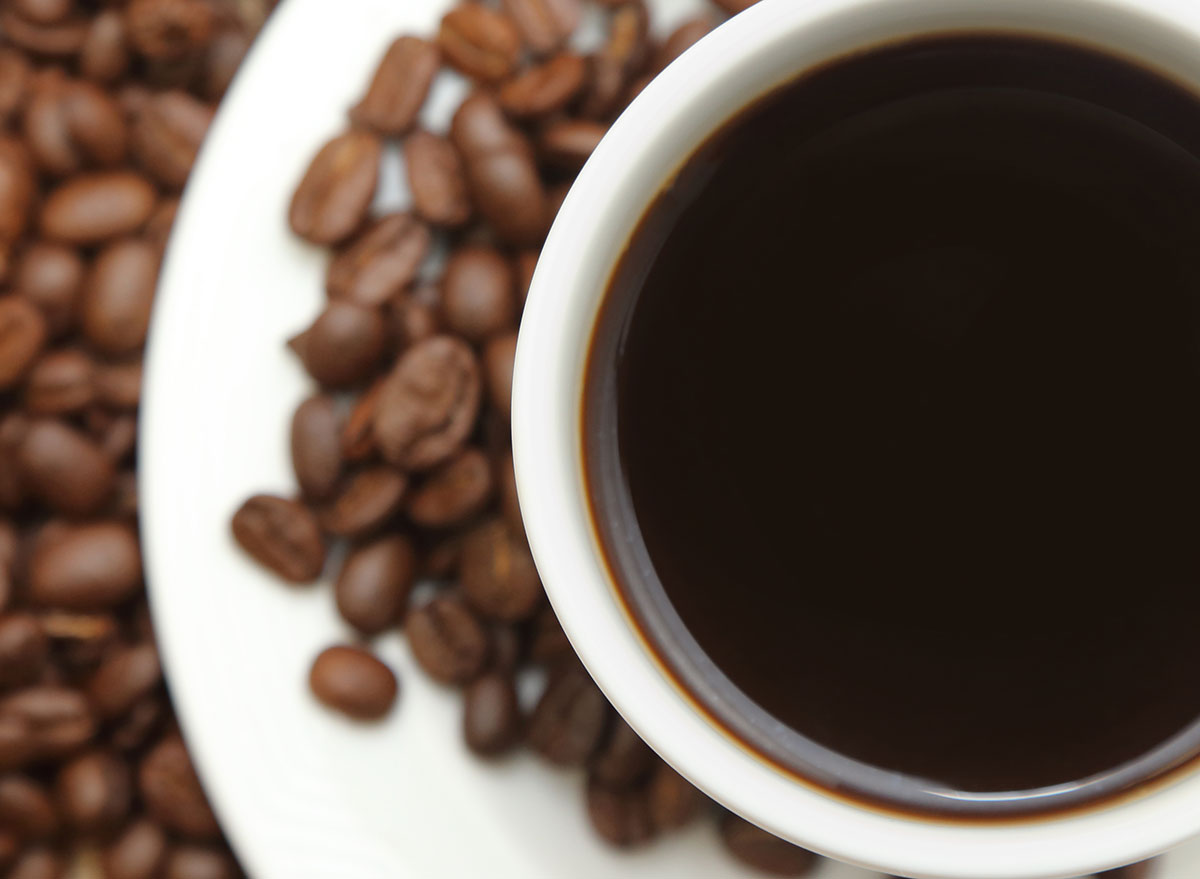
Your morning coffee habit doesn't just wake you up—it could also save your life. Research conducted by Stanford Medicine found that caffeine, like the levels found in coffee, can help fight off disease-causing chronic inflammation, which contributes to cancer, Alzheimer's, heart disease, and other life-threatening chronic illnesses. The researchers also reviewed another study published in the journal Nature Medicine and found that study participants who had the most caffeine intake had the lowest levels of inflammation.
Beans
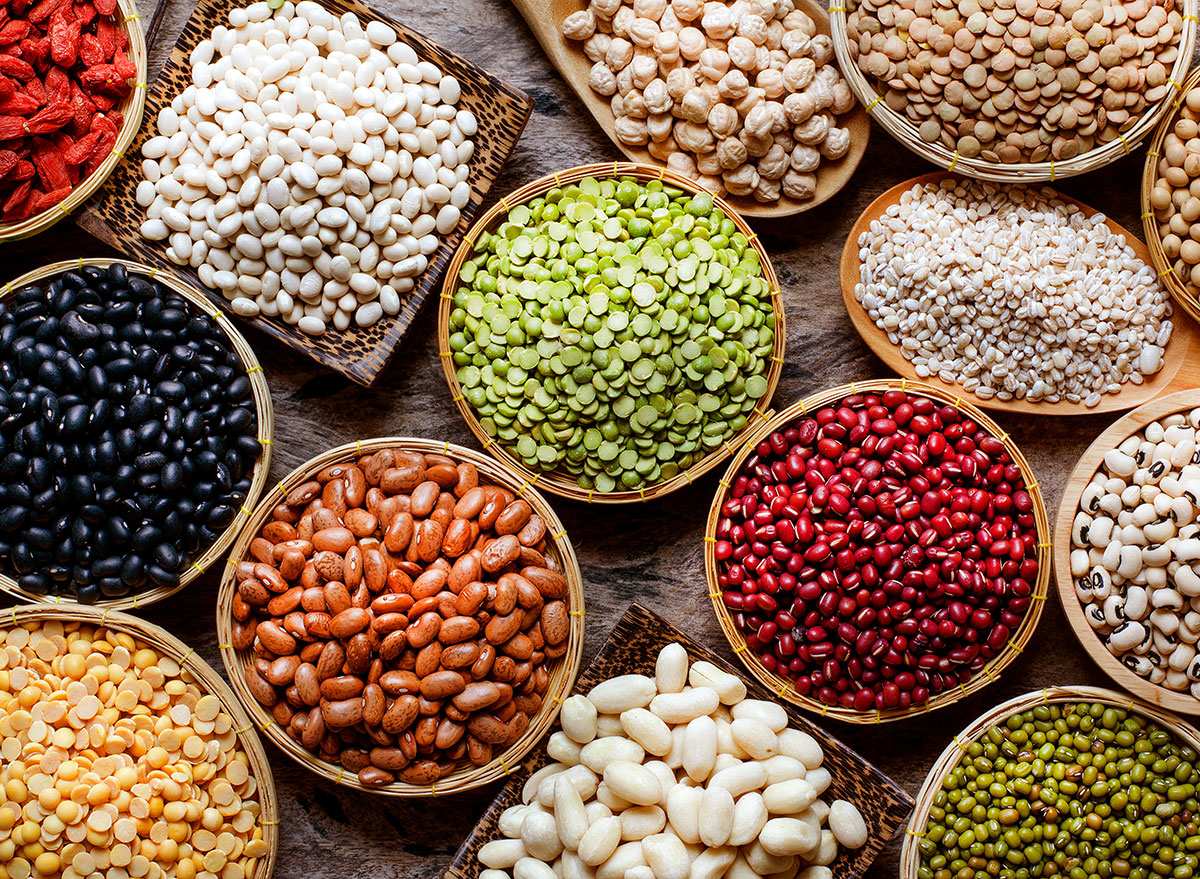
Beans are probably one of the most underrated superfoods. Beans contain high amounts of protein, fiber, and micronutrients—like potassium—while being low in fat, saturated fat, and sodium and free of cholesterol. This is particularly important for older adults, as dietary fiber and potassium are nutrients of concern in aging populations. A review published in the journal Critical Reviews in Food Science and Nutrition laid out how beans are closely linked to a reduced risk of chronic diseases such as cardiovascular disease, cancer, and diabetes—all of which older adults are at a higher risk of developing.
Dark chocolate

Dark chocolate (think: more than 75% cacao) is rich in antioxidants, which could help stave off disease and help you live longer. A review published in Nutrition & Metabolism found that chocolate consumption may reduce the risk of cardiovascular disease. This is mainly attributed to the flavonoids found in cocoa, which protect cells from free radicals; lower blood cholesterol and blood pressure; and improve blood flow.
Hot peppers
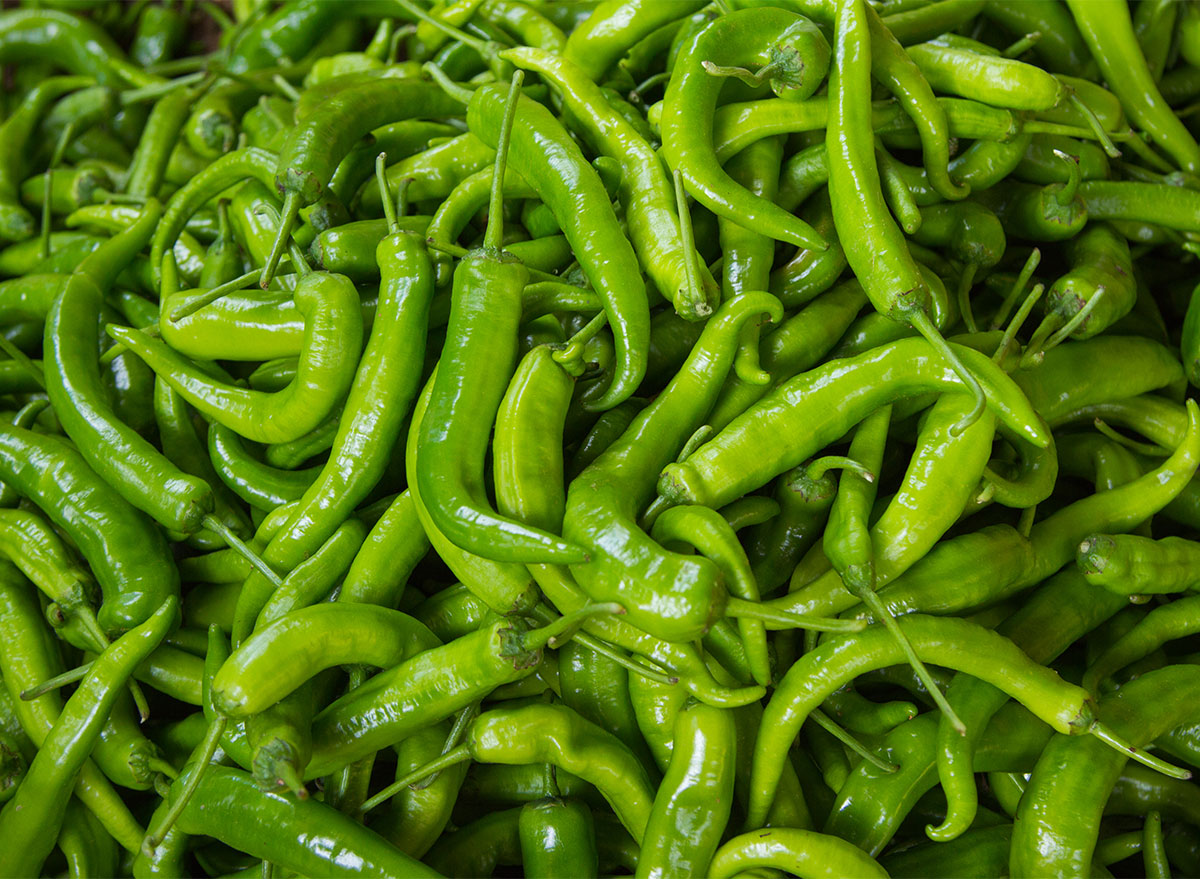
If you like spicy food, you may be in luck; hot peppers have proven to extend your life. A Chinese study found that people who ate spicy food three to five days a week reduced their risk of dying by 15%. The key ingredient is the capsaicin, researchers believe; capsaicin also has anti-inflammatory properties and can rev up your metabolism. Hot sauce may be the closest thing we have to a miracle anti-aging supplement.
Salmon
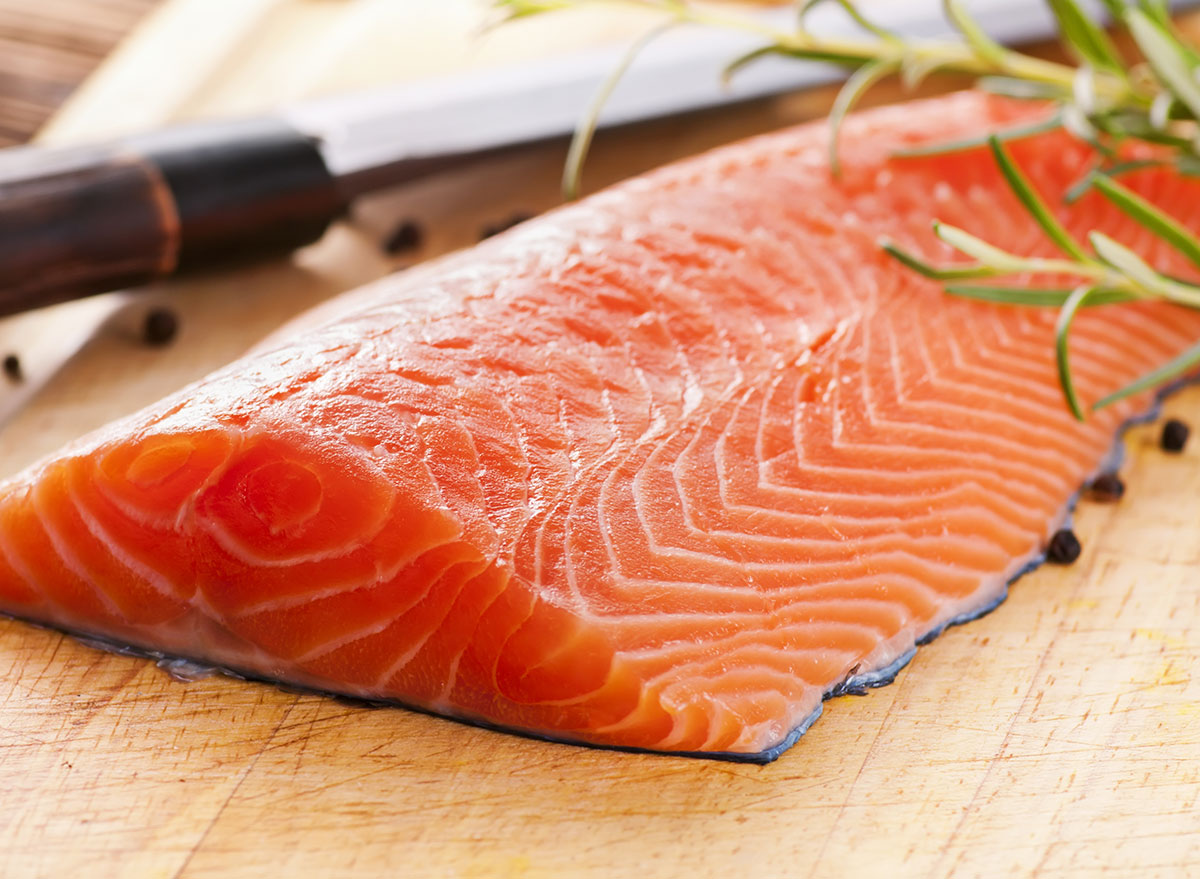
A diet with fatty fish, including salmon, may help slow an aging heart. Salmon is rich in omega-3 fatty acids, which can help lower blood pressure and can help prevent heart disease. A small study published in Nutrition Research found that when men included oily fish in their lunches for 8 weeks, the men experienced high levels of anti-inflammatory omega-3 fatty acids and lower levels of triglycerides and inflammatory markers. The researchers concluded that including oily fish, like salmon, in your diet can likely reduce levels of cardiovascular disease risk markers.
Whole grains
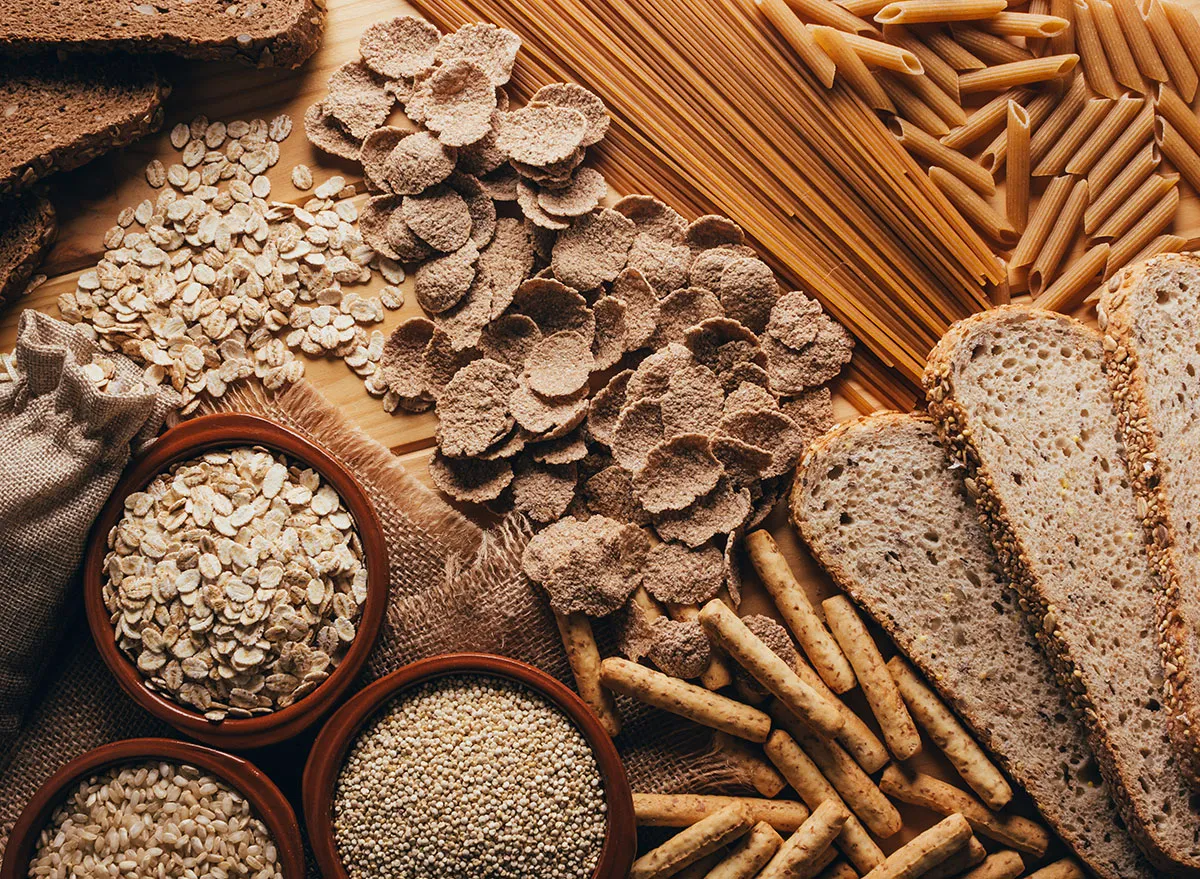
Eschewing refined white carbohydrates, including bread, rice, and sugar, for more complex carbs like brown rice, quinoa, barley, and wheat, is known to help you lose weight. But it can also help you live longer; a review from the Harvard T.H. Chan School of Public Health found that in the 12 studies they reviewed, people who ate 70 grams of whole grains each day had a lower risk of premature death, compared to the group who ate fewer or no whole grains.
Yogurt
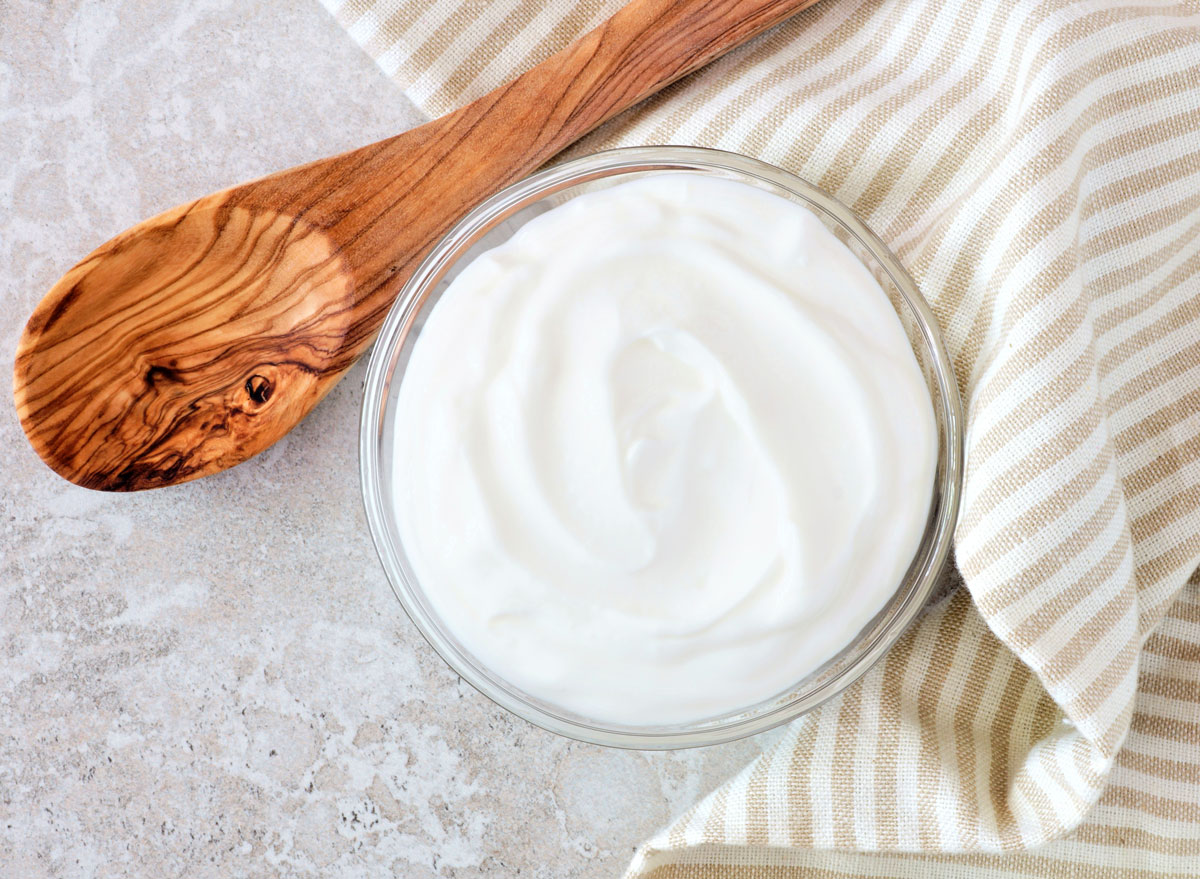
Yogurt is one of our favorite foods, especially protein-packed Greek yogurt. But it's the live cultures, not protein, in yogurt that may keep you alive longer. Over a century ago, one researcher noticed an unusually extended lifespan among people who consumed large amounts of probiotic-rich yogurt. The specific mechanism is still unclear, but researchers believe that probiotics can influence longevity by decreasing the harmful effects of stress and modulating your insulin response.
No comments:
Post a Comment